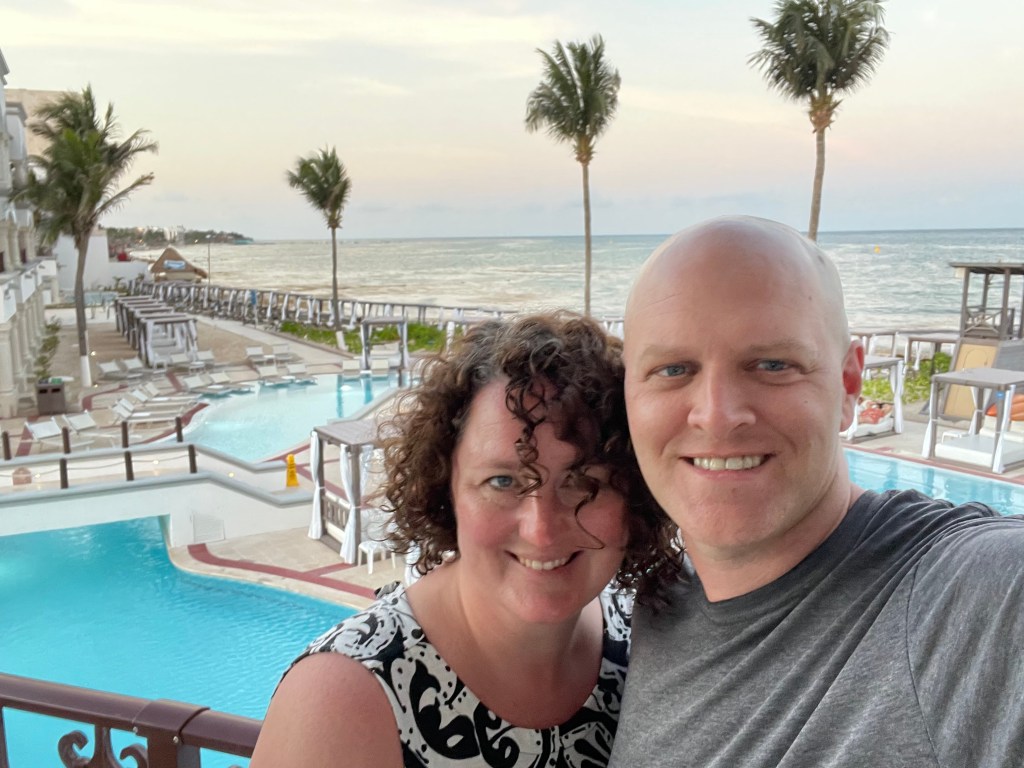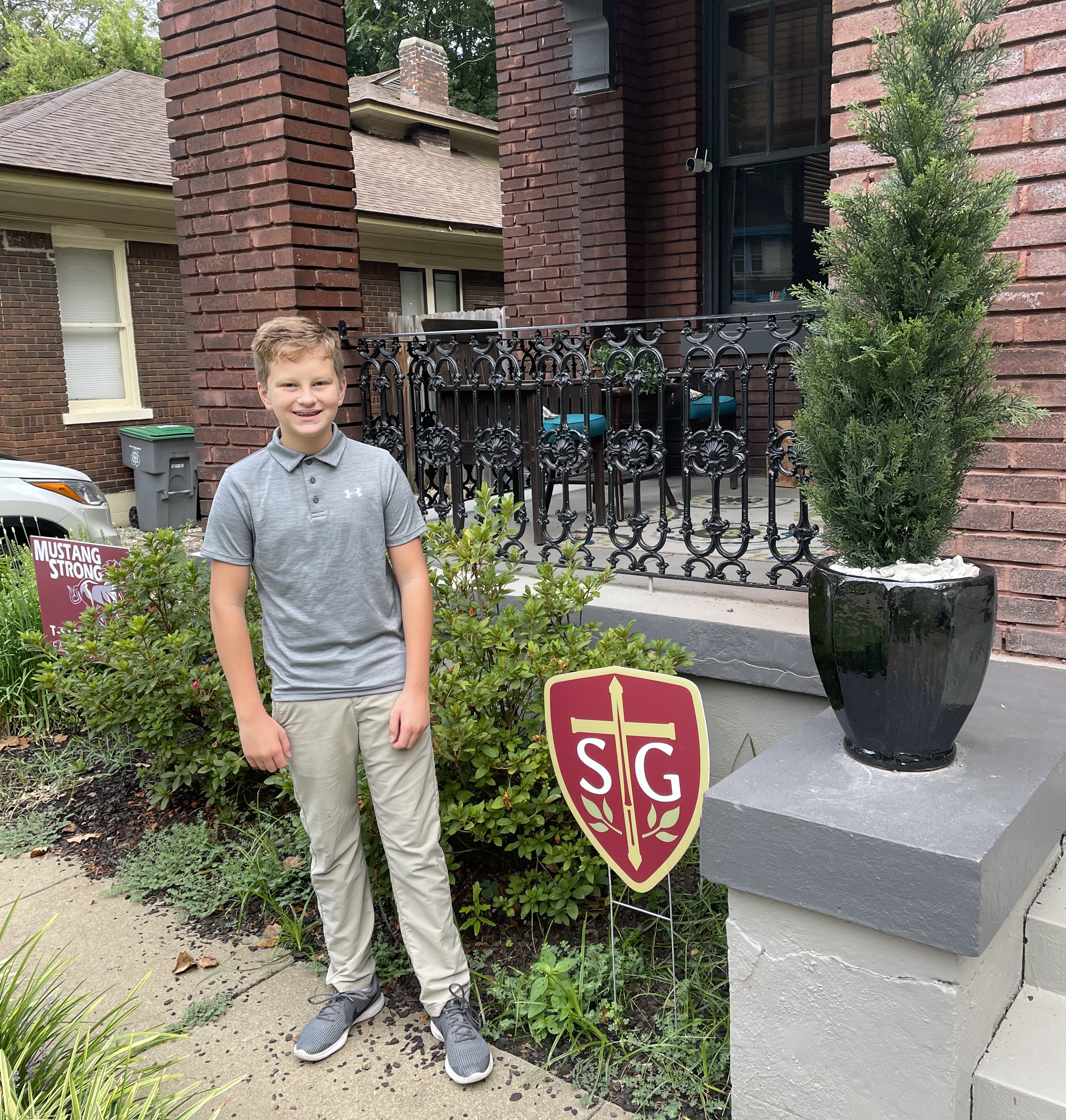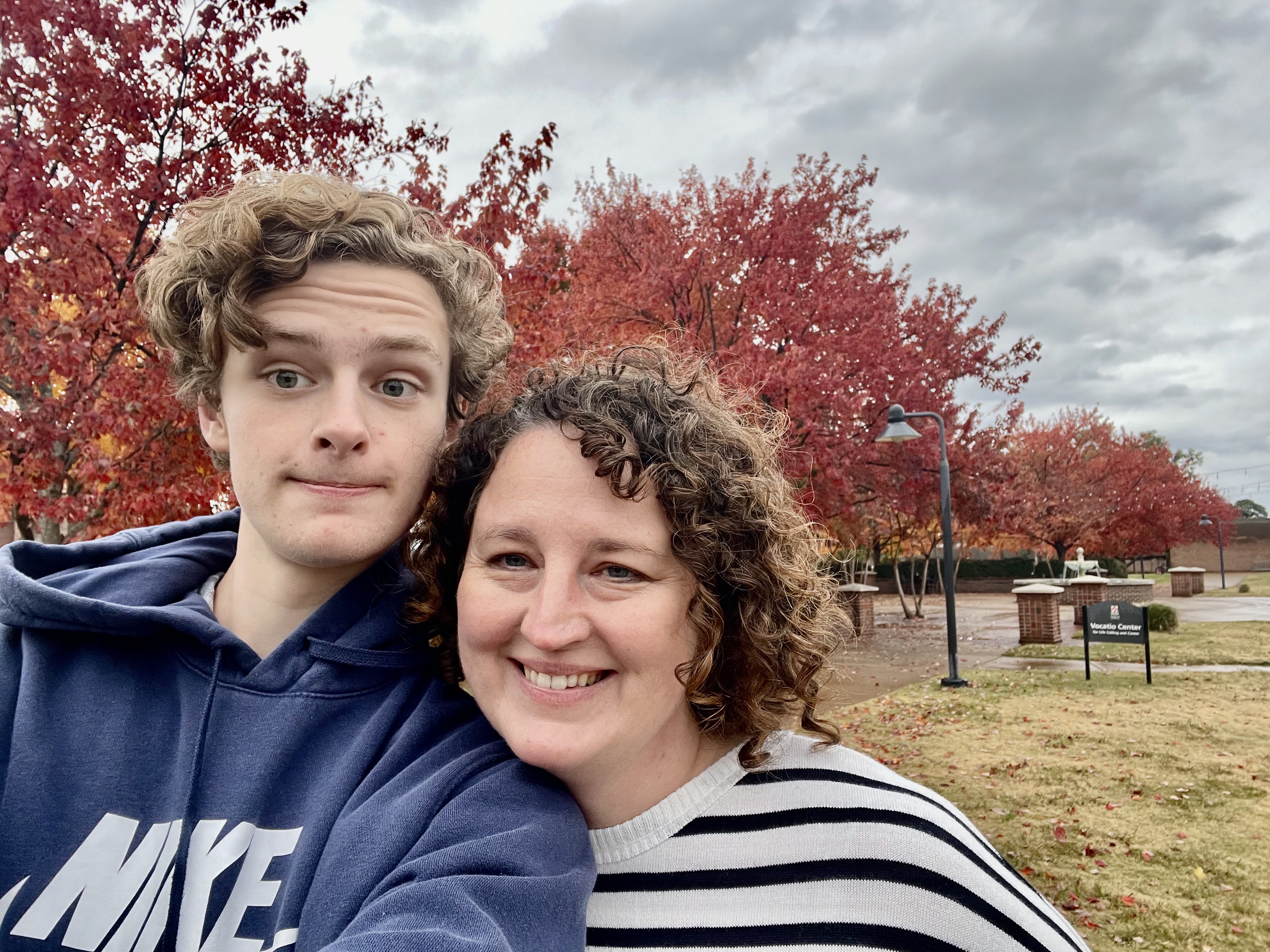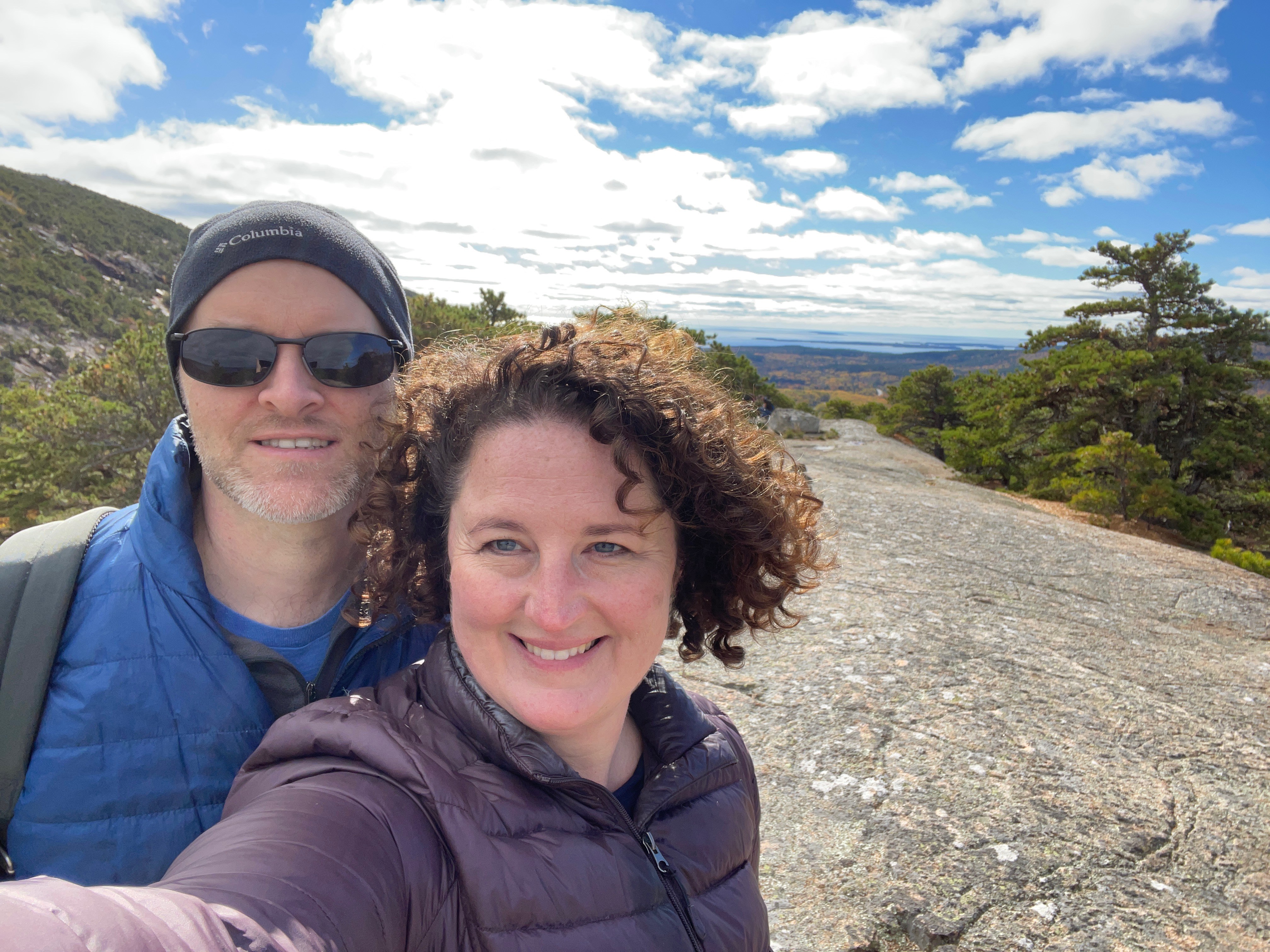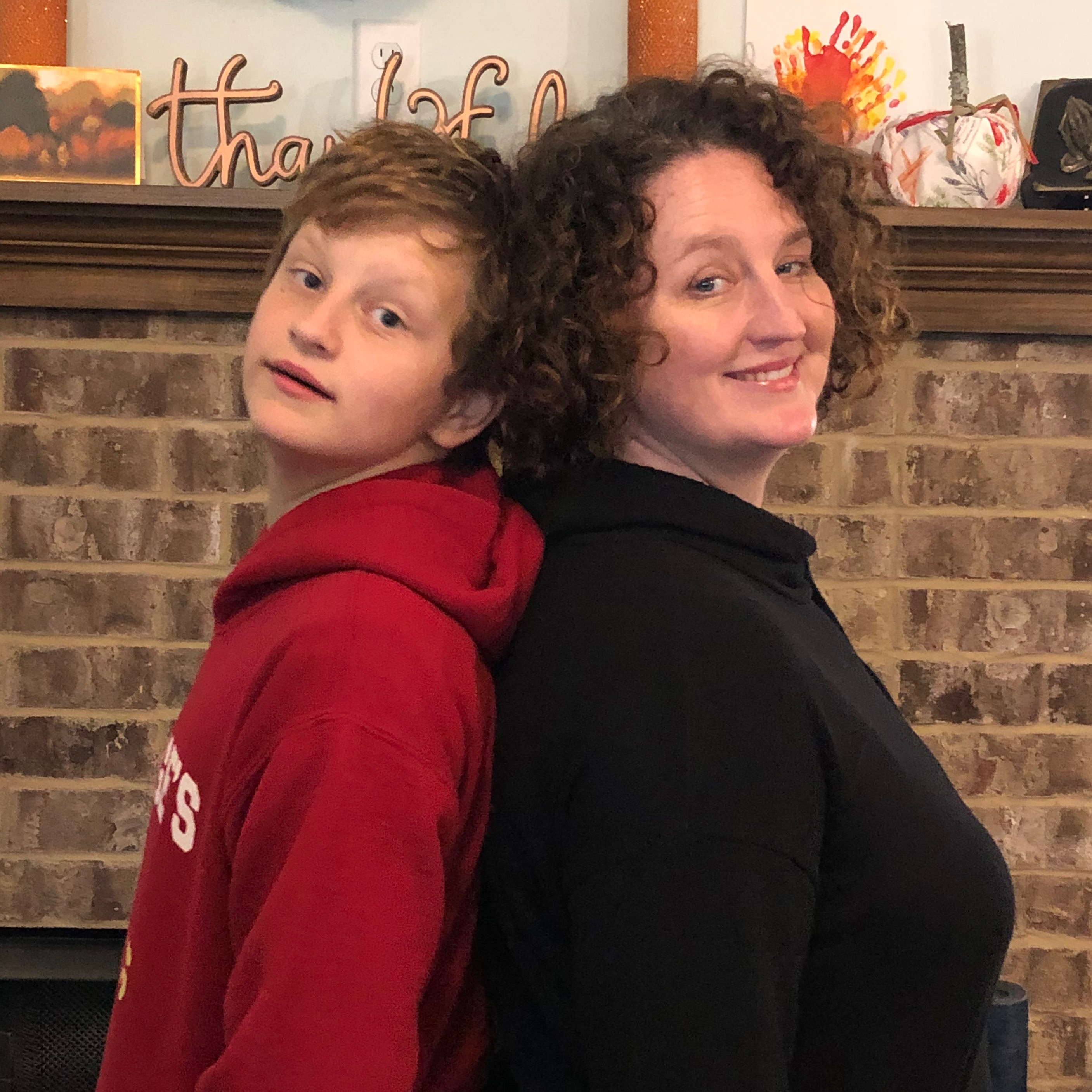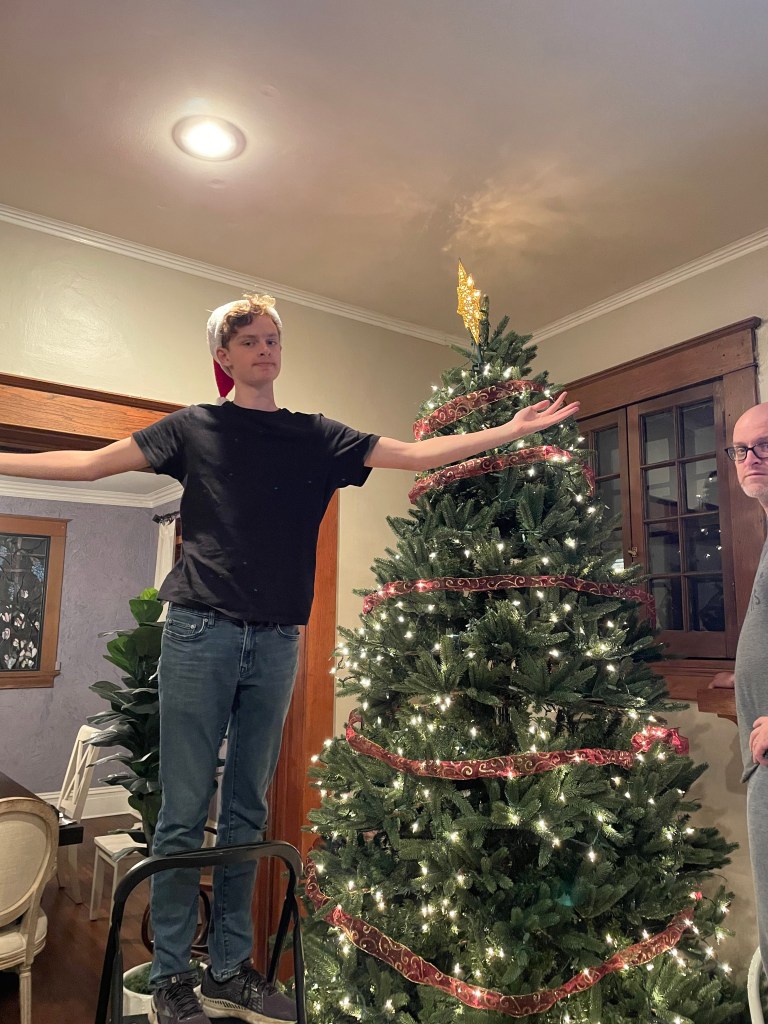I wrote the following three Facebook posts over the last week, but I thought I would post them here as well.
This first one was written on Sunday, November 21, 2021.
We had quite the scare this weekend. On Friday afternoon Mandy was driving to the Target parking lot to send off the kids to YoungLife camp. She started having pain in her chest and down her arms. She pulled over and called me. I came to pick her up, we went to see Adam off, and we came back home. She started feeling better. Weird but better. A couple of hours later her dad recommended that she take her blood pressure. We have a monitor, so she did that. Her blood pressure was very high. We called brother-in-law Stephen, and he suggested that we go to the ER. I’m glad he said that, because that’s exactly where we needed to be.
After several tests, it was determined that something had happened to her heart. Her troponin levels were very high, and a heart attack wasn’t ruled out. More tests and it was revealed that there didn’t seem to be damage to her heart, which might have meant immediate surgery. Her blood pressure was getting worse, though.
It wasn’t until 2:30 Saturday morning that we were able to get into a room in the cardiology wing of the hospital. We both got about an hour of sleep. We were told that the plan was a heart cath at some point yesterday, but they needed to get the blood pressure down before doing so. At this point Mandy was still in some pain.
Yesterday afternoon we spoke with the cardiovascular doctor. He said that he was 80% sure that it was pericarditis rather than a heart attack. Pericarditis is inflammation around the pericardium. It can cause pain, which can cause elevated blood pressure. It can also cause triponin levels to increase. All of that happened. It was also good news in that medication is the remedy.
Fast forward to this morning. Mandy slept great and feels very good. No chest pains and a marathon of Hallmark movies. Her blood pressure is good, but her troponin levels, while down, are still elevated. They want to do a heart cath tomorrow just to make sure it’s nothing more than pericarditis. We feel really good about that. It’s thorough, and if you know Mandy, you know that she’s a fan of thorough. She should be able to go home tomorrow night assuming the results of the heart cath are good.
We’re grateful for family and friends who have been helping take care of kids and reaching out with prayer and kind words.
The next one was written Tuesday, November 23, 2021.
I wanted to give an update on Mandy. Yesterday was honestly a really hard day. We were hoping that the heart cath would show no issues with her heart, which would confirm the pericarditis diagnosis. That unfortunately wasn’t the case. They found a tear in an artery. The new diagnosis is Spontaneous Coronary Artery Dissection (SCAD). She did have a heart attack, but it was caused by this tear rather than by blockage. It most frequently occurs in otherwise healthy women between the ages of 40-50. While it, like pericarditis, can be treated with medication, it definitely seems more serious.
The actual procedure was tough on Mandy as well. She was up at 4am to prep, and they came to get her at 9:30. For some reason, they ended up bumping her for another patient, so she just had to wait. She was already uncomfortable after being in a hospital bed for several days and being hooked up to all kinds of stuff. And then the waiting and actual procedure were tough. She was pretty uncomfortable the rest of the day.
This morning I was thinking back to the Ted Lasso episode that features the phrase “It’s the hope that kills you.” I felt that way yesterday. We had a whole lot of hope for 24 hours, and then just like that it was dashed. Mandy was in pain, was drugged up, and was disappointed. And I was pretty helpless to do much for her. And I was tasked with sharing the news with family. This was hardest with the boys. I wasn’t sure how much to share and how much to hold back from them.
I also thought about Proverbs 13:12, which says “Hope deferred makes the heart sick, but a longing fulfilled is a tree of life.” My heart definitely felt sick yesterday, but I also love the image of this tree of life. Before going to bed last night I reminded Mandy (and myself) that tomorrow will be a new day. It could be a much better day.
I’m happy to report that she slept well last night, and feels much better this morning. We are waiting to hear from her doctor. We’ve been told that his plans are to discharge her today. We pray that is the case. I know that she’s ready to get home.
I am well aware that there may be some disappointing turns throughout all of this, but we’re resolved to trust God, to seek to press through, and like Ted Lasso, to fight for hope. Mandy has never felt like she had so many people seeking to protect her heart, and we feel confident that we are in good hands with the team of doctors at our side. We’re thankful to have so many people praying for us and reaching out to help. We feel loved.
The final one was written on Thanksgiving morning (November 25, 2021).
As I reflect on this Thanksgiving morning, I can’t help to think about this last week that we’ve been through. We’ve now had two nights at home, which has been so nice. Mandy feels good. We’re looking forward to seeing the cardiologist in two weeks just to better understand what happened and what the road forward looks like. But for now we’re glad to be home with the boys. And we’re very grateful.
I want to specifically thank our parents for helping out with the boys. We knew they were in good hands while we were in the hospital. That allowed us to rest. I’m also grateful for our sisters Megan and Taylor, who have checked in on us every day and been available for whatever we needed. And I’m grateful for our boys Adam and Micah. They had to pivot several times. But they were both champs. And it’s been great to be back with them. We had to miss Micah’s first swim meet on Saturday. He came in first in his butterfly race!
I’m grateful that Howard suggested to Mandy that she take her blood pressure last Friday night. And I’m so thankful that Stephen is our brother-in-law. Stephen is a nurse practitioner who gets a lot of after hours calls from our family for one symptom or another. After hearing her blood pressure reading he suggested that we go to the ER. He was also the one I immediately called after I got the call from the surgeon who did the heart cath and told me what happened. Stephen suggested that I reach out to Linwood White, his good friend who is the Nursing Director of the ER & Cath Lab at Baptist. Linwood had already walked Mandy’s stretcher down to the heart cath procedure and waited with her and helped her understand what was about to happen. Once I called Linwood, within five minutes he was sitting in our room explaining what had happened. He then got Stephen on the phone to explain it to him. That settled me down and gave me the information I needed to communicate to the family. I’m so grateful to those guys for being with us in those moments.
On that note, I’m grateful to Anne Higdon for coming to see Mandy on Sunday night. We had decided that I should spend the night at home to be with the boys. Anne is a nurse at Baptist, and knowing that Mandy was going to have a visitor spend some time with her was reassuring.
I’m grateful for the doctors and nurses at Baptist East who cared for Mandy so well. Being at a hospital is pretty terrible. There are so many things you think ought to change in the way the conduct business. For example, a tv in the ER blaring wrestling seems like a bad idea. But these doctors, and especially these nurses, work their tails off. We knew we were in good hands, and I’m grateful for their care.
I’m so grateful to the friends who have helped out with kids, brought food by, set up meal trains, called, texted and emailed. We have been absolutely blown away by the love and support we’ve felt by you all these last few days. We’ve felt love and prayer in such strong ways. Thank you so much for that.
There were many times over those days in the hospital that I was so grateful to be Mandy’s husband. I know there are many who would have signed up to sit with her at the hospital, but I’m beyond honored to be the one who got to do that.
Finally, we are both grateful for life. This has been a time where Mandy and I have both asked some What if? questions. Those are scary. They also cause you to pause, take stock of life, and treat each day as a gift. During this time we’ve reflected on friends that we’ve lost. We’ve thought specifically about Shawn and Asuka. And we’ve thought a lot about our friends who are battling cancer and other illnesses. Our hearts are with you.
I hope that today is a day for you to pause, reflect and give thanks for the beauty and bounty in your own life.
Happy Thanksgiving!
It’s been two and a half weeks since Mandy’s heart attack. Tomorrow we see the cardiologist. Mandy has lots of questions, so hopefully we’ll get them answered. Some of her medication has caused her to have much less energy than normal (she says that she’s in “Vacation Mandy” mode). And there’s of course some anxiety about this happening again. But overall she’s felt good. We’ve had lots of people checking in on us and providing meals, and the boys seem to be doing ok. We’re grateful for that.



